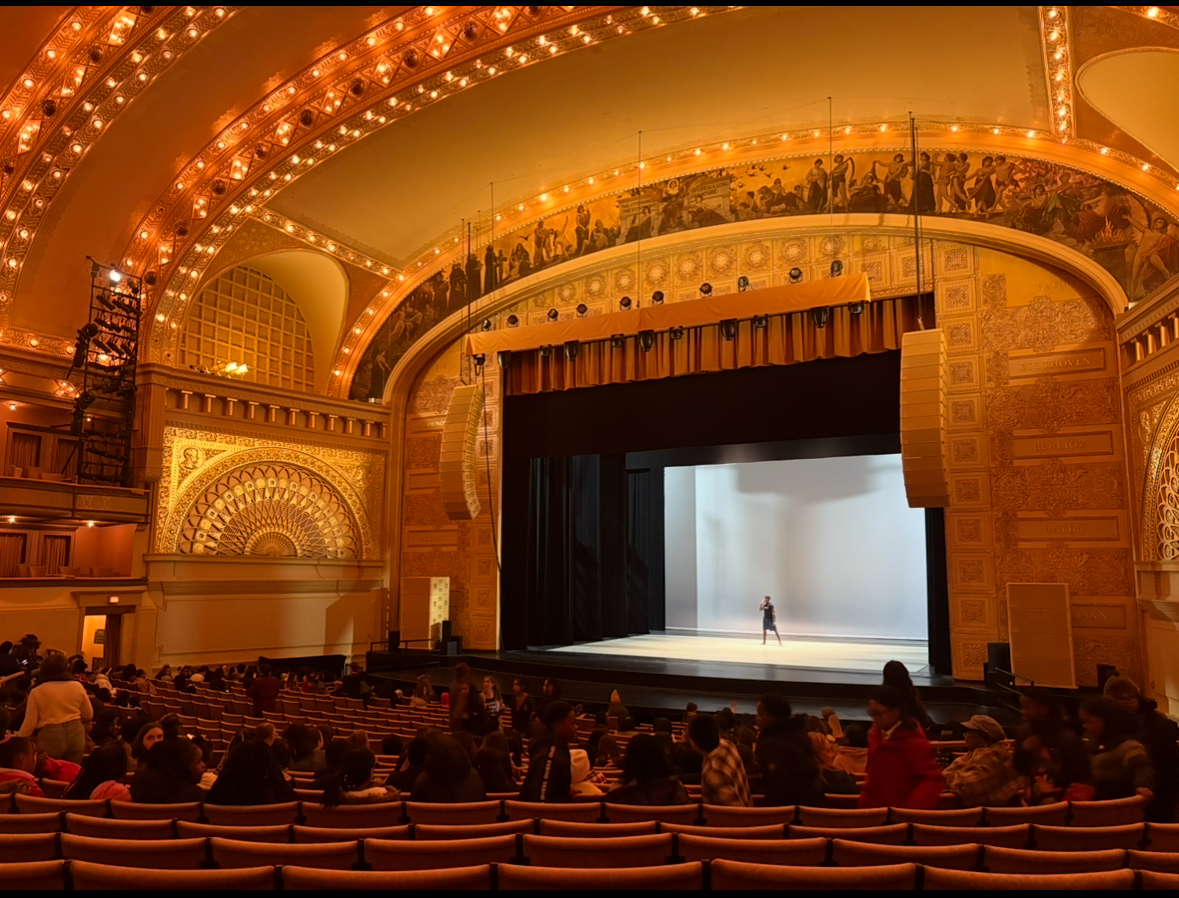Time’s ticking for ‘BookTok’
by Julia Ludden
I like to consider reading a hobby of mine. Although I am not a “finish-one-book-a-week” type of girl, I enjoy reading when I have the time.
So, as any other bored and quarantined person in 2020, I was delighted when I originally found the “#booktok” trend on TikTop that had just blown up. The trend started with a few book recommendations, but has basically grown into a full fledged genre, even designated its own “#booktok” table at Barnes and Noble.
I started off strong with books like “Six of Crows,” “They Both Die at the End,” and “The Seven Husbands of Evelyn Hugo,” but I soon discovered that nowadays every book that goes viral is basically a carbon copy of another. It’s like fast fashion, but for books.
Let’s take a closer look at a recent author who has risen to fame for her modern romance novels: Colleen Hoover. If you are looking for cringe-filled and predictable plots, then she might definitely be for you, but I genuinely question how she is currently the top selling author in America. There is even going to be a movie adaptation of her most famous book, “It Ends with Us.” I’ve read it, and if the movie is anything like the book, I will not be seeing it, no matter if Blake Lively is in it or not.
The sequel “It Starts With Us” was unfortunately worse than the first, and was highly redundant. I can respect the easy-read romances, but why Hoover has 26 of them beats me. One of her books I did enjoy was “Verity,” only because it had interesting plot twists, but I definitely could have done without the overkill unhinged romance. Not to mention that somehow every character has a horrible past that somehow draws them together, which is unrealistic and honestly glorifies trauma. Each book is produced so quickly and uses the same basic outline, just mixing up the details. Colleen Hoover books are like the Hallmark movies of literature.
What annoys me most about the influx of the same genre of books is that they lack originality. A lot of successful plotlines are being reused, and now each book has a certain trope. For example, the “Red Queen” by Victoria Aveyard and “The Selection” by Keira Cass are so clearly modeled after the popular dystopian series “The Hunger Games,” I’m surprised they weren’t sued for copyright violations. Clearly readers enjoy drama-filled and unlikely romances, so enter enemies to lovers and love triangles, two tropes that label the relationship dynamic in these books. There are also tropes like friends to lovers, forced proximity, forbidden love, marriage of convenience, I hate everyone but you and many more, each more laughable than the last. Although these are more specific to romance novels, they are all the rage right now, with most of the literary world absorbed within these all-too-predictable themes.
I would much rather read quality over quantity. Many popular novels found today are easy reads that don’t require the reader to understand literature. While sometimes these books are fun to read and offer people who don’t typically like reading easier options, I still wish that authors would write a couple of complex and unique books instead of producing a million par for the course carbon copies.
No such thing as bad publishing
by Jaclyn Cummings
For “sophisticated” book lovers everywhere, the turnover of literature that has stemmed from the rise of BookTok, InstaReads, and overall “trendy” writing has been a bitter pill to swallow. Great reads have been overshadowed by the swell of cheesy writing and straightforward plotlines flooding media under the disguise of depth.
That being said, while these new novels might not reach your standards when choosing your next read, it is important to remember that those standards are self imposed. Every piece of literature, from “War and Peace” to “Lightlark,” has value. They each have authors that have printed and binded a piece of themselves for others to take, and with that comes a fresh perspective, regardless of the material. That is the brilliance of literature; you are capable of learning something new from each page-if you don’t mind digging.
As for the new individuals joining the reading community for the “influencer aesthetic,” they should be welcomed with open arms. There are no restrictions or requirements on how to be a proper reader. Gatekeeping the activity only serves to exclude individuals from a beneficial pastime. There are no wrong reasons to read a book, and as reading grows in popularity, I for one believe that the expansion brings only good things.
Additionally, social media has brought the spotlight to countless aspiring authors who might have otherwise been unacknowledged in a world where big names make headlines. Writing is no longer restricted to those who can afford agents, interviews, and formal publicity. Instead, people are given the chance to put themselves out there and gauge the audience’s response. They are able to test their creativity and see where it leads them in the medium, similar to that of an artist or designer using their platform to gain attention. Now, writers have more opportunity for success, and with that comes a surplus of new material that will succeed.
Ignoring how new books provide a chance to grow through new material and voice variety, at a bare minimum reading is an outlet for countless individuals. It is a loyal support system that helps people temporarily escape the stress of their lives. Regardless of personal preferences, it must be recognized that each book that has been thrusted to the spotlight through social media has its own developed fanbase. You might not be fans of the story, but that does not mean it hasn’t effectively brightened someone else’s day. Each person has their own acquired reading taste, and everyone deserves the opportunity to explore their preferences freely and without ridicule. In other words, these books don’t bite. If the book you’re reading is not for you, by all means bring it back to the library; the person on the waiting list will sing your praises.
Ultimately, while it may be easy to write off this new wave of literature, readers should make an effort to embrace the stories told. Each carefully crafted book holds untapped potential—you just have to be willing to move past your preconceived notions and create a space for growth.



















![Movie poster for '[Rec]" (2007).](https://www.lionnewspaper.com/wp-content/uploads/2023/04/rec-640x900.jpg)





